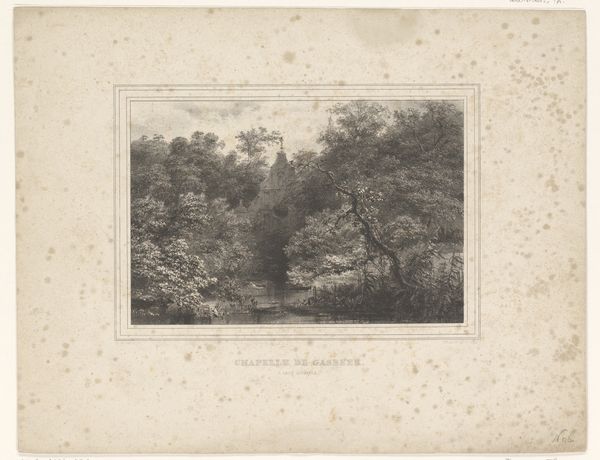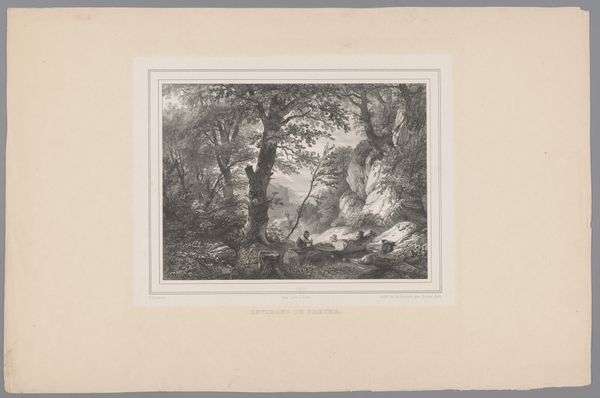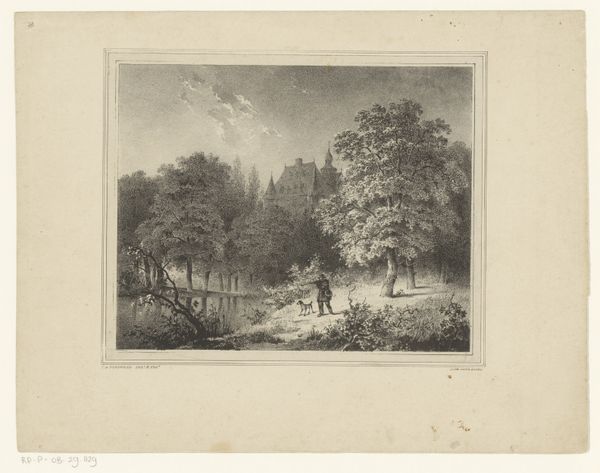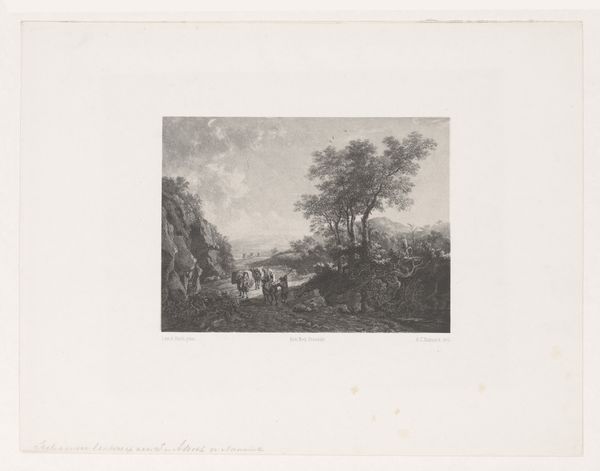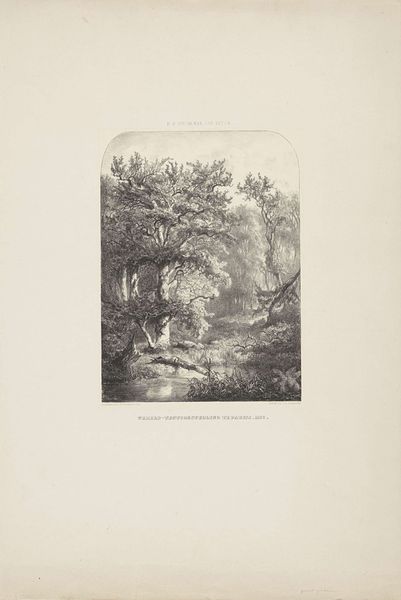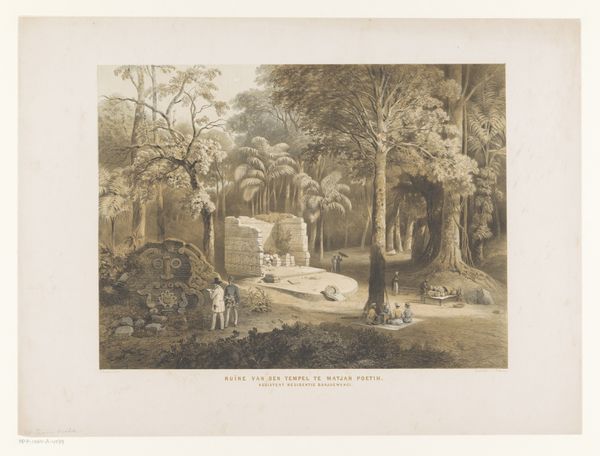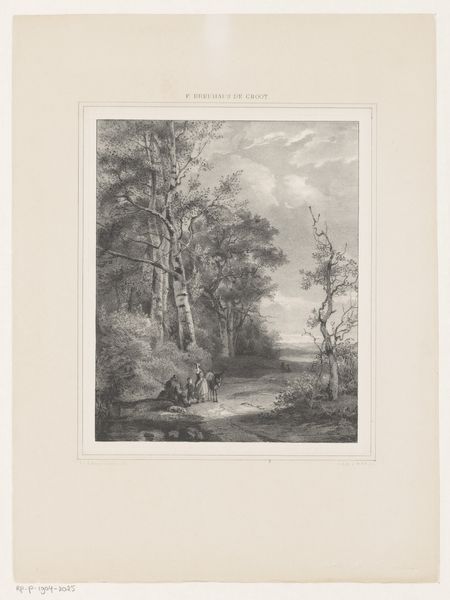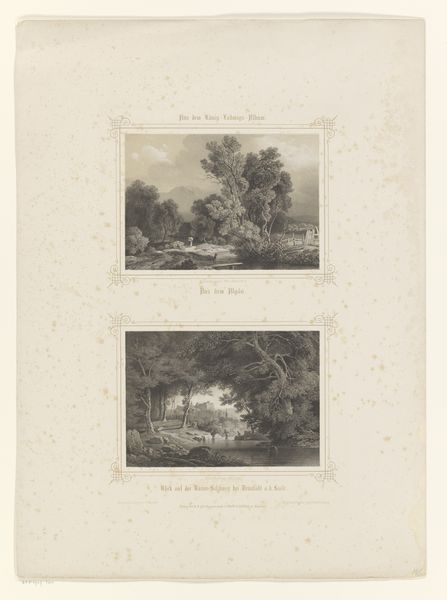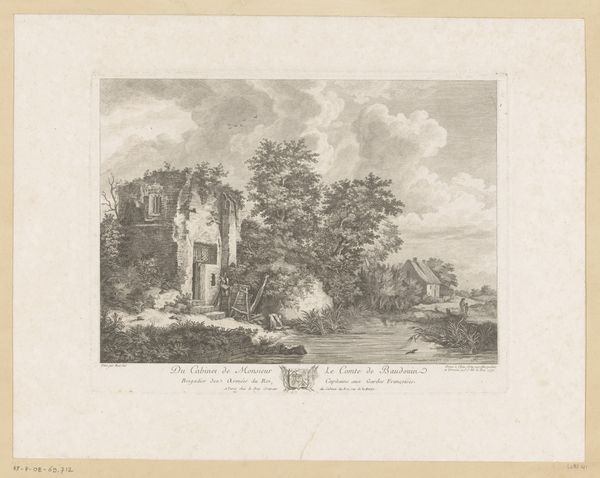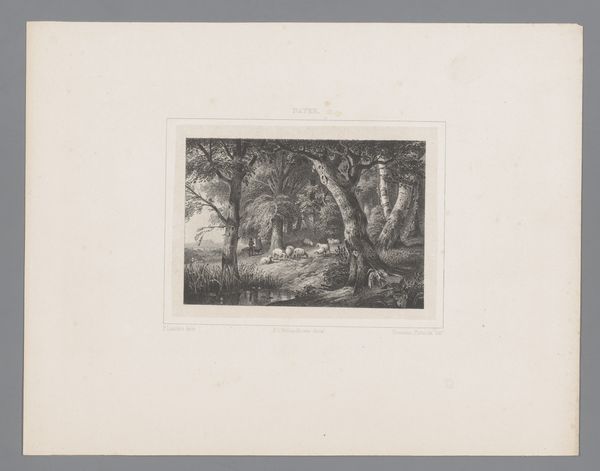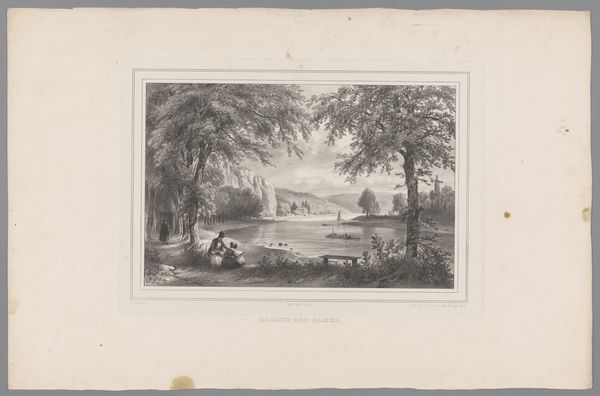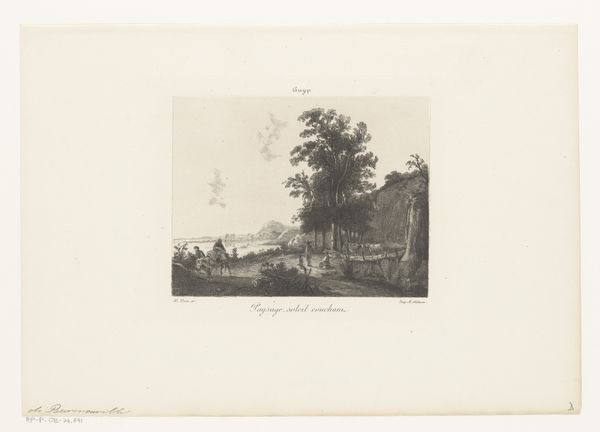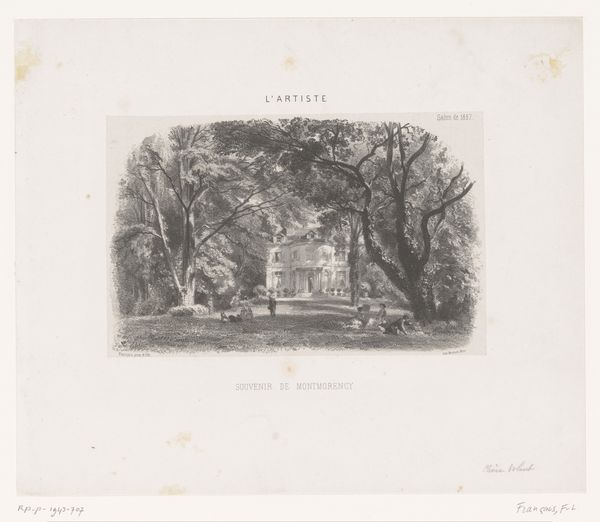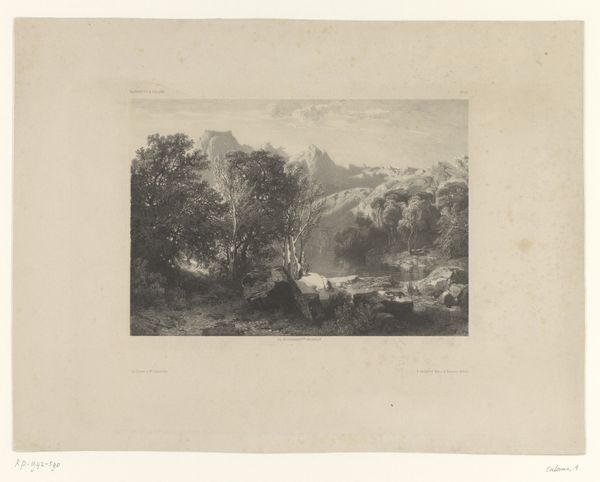
print, engraving
# print
#
landscape
#
figuration
#
romanticism
#
history-painting
#
engraving
Dimensions: height 263 mm, width 357 mm
Copyright: Rijks Museum: Open Domain
Editor: This engraving, "Figuren tussen kloosterruïnes" or "Figures Amongst Monastic Ruins," dates to before 1845 and is by François Joseph (II) Pfeiffer. The scene, rendered in precise detail, creates a rather melancholic mood for me. The architecture contrasts with the nature and the figures' clothing. What are your impressions? Curator: I am intrigued by the relationship between the ruins and the figures, specifically, their dynamic pose contrasted against the stillness of the stone. Note how the lines of the architecture, particularly the arches, direct the eye. Furthermore, consider the light: the artist's management of shadow and highlight to emphasize certain planes within the ruined structures, which invites a study of volume. How do the textures play into this narrative? Editor: I see what you mean. The roughness of the stone versus the smoother rendering of the figures certainly creates a textural contrast that accentuates their movement. But isn't the narrative context important? Curator: Context is relevant, but here, let's focus on the work's intrinsic elements. Observe the spatial organization, its delicate balance of forms. Notice how the light defines the negative space between the columns, thus creating implied forms, equally tangible and affecting as those carved in stone. Editor: So, the relationship between the shapes is more important than the scene being depicted itself? Curator: Not necessarily "more" important, but perhaps of equal, if not immediate, significance. See how the receding planes enhance the sensation of depth, an important factor within the broader aesthetic language of Romanticism? Consider how the shapes convey this message. Editor: This way of seeing shifts my focus. Instead of immediately asking *why*, it focuses on *how* the image creates the atmosphere. Curator: Exactly. It’s about close analysis of form. We can see the artist's conscious choices more clearly.
Comments
No comments
Be the first to comment and join the conversation on the ultimate creative platform.
